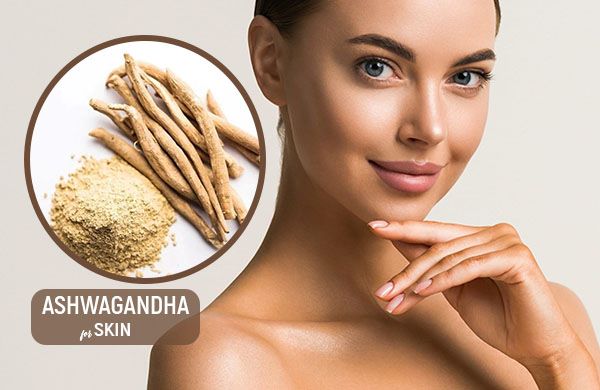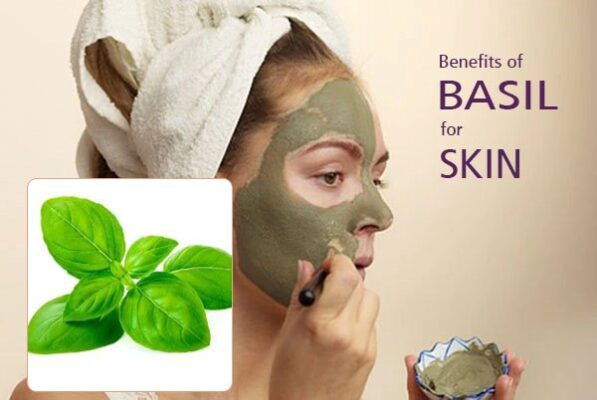Apple cider vinegar (ACV) is a type of vinegar made from fermented apple juice. It is made by crushing apples, then squeezing out the juice. Bacteria and yeast are added to the liquid to start the alcoholic fermentation process, which converts the sugars to alcohol. In a second fermentation step, the alcohol is converted into acetic acid by acetic acid-forming bacteria (Acetobacter species). Acetic acid and malic acid combine to give vinegar its sour taste. Some people believe that leaving apple cider vinegar on the face overnight can help to improve skin health. However, there is no scientific evidence to support this claim. In fact, some experts believe that leaving ACV on the face overnight can actually be harmful, as it can be too acidic for some people’s skin.
If you are considering using ACV on your face overnight, it is important to patch test it first on a small area of your skin to make sure you do not have any adverse reactions. You should also dilute the ACV with water before applying it to your face.
Sources and Forms of Apple Cider Vinegar
Here are some sources and forms of apple cider vinegar
Raw Apple Cider Vinegar
This is the most common type of apple cider vinegar. It is made from fermented apples that have not been heat-treated or filtered. Raw ACV contains the “mother,” which is a cloudy substance that is thought to contain beneficial bacteria and enzymes.
Filtered Apple Cider Vinegar
This type of ACV has been heat-treated and filtered, which removes the “mother.” Filtered ACV is clear and has a milder taste than raw ACV.
Organic Apple Cider Vinegar
This type of ACV is made from organically grown apples. Organic ACV is generally more expensive than non-organic ACV, but it is thought to be more beneficial for health.
Unpasteurized Apple Cider Vinegar
This type of ACV has not been heat-treated, which preserves the enzymes and bacteria in the vinegar. Unpasteurized ACV is thought to be more beneficial for health than pasteurized ACV.
With the Mother
This type of ACV contains the “mother,” which is a cloudy substance that is thought to contain beneficial bacteria and enzymes. ACV with the mother is generally more expensive than ACV without the mother, but it is thought to be more beneficial for health.
Se also: 10 Amazing Detox Water Recipes for Skin
Apple cider vinegar can be used in a variety of ways
As a salad dressing
Apple cider vinegar can be used to make a delicious and healthy salad dressing. Simply whisk together some olive oil, apple cider vinegar, Dijon mustard, salt, and pepper to taste.
As a marinade
Apple cider vinegar can be used to make a flavorful marinade for meats, poultry, and fish. Simply combine some apple cider vinegar, olive oil, herbs, and spices in a bowl. Marinate your food for at least 30 minutes before cooking.
As a hair rinse
Apple cider vinegar can be used to rinse your hair after shampooing. This can help to balance the pH of your hair and scalp, and it can also help to remove product buildup. Simply mix equal parts apple cider vinegar and water in a spray bottle. Spray your hair with the mixture, and then rinse it thoroughly with water.
As a toner
Apple cider vinegar can be used as a toner to help tighten pores and reduce acne. Simply mix equal parts apple cider vinegar and water in a spray bottle. Apply the mixture to your face with a cotton ball, and then rinse it thoroughly with water.
It is important to note that apple cider vinegar can be acidic, so it is important to dilute it before using it on your skin or hair. You should also start with a small amount and gradually increase the amount as your skin or hair gets used to it. If you experience any irritation, discontinue use.
The potential benefits of apple cider vinegar
- Weight loss: ACV may help to promote weight loss by suppressing appetite and increasing calorie burning.
- High blood sugar: ACV may help to lower blood sugar levels by improving insulin sensitivity.
- High cholesterol: ACV may help to lower cholesterol levels by reducing the absorption of cholesterol from the gut.
- Skin care: ACV may help to improve skin health by killing bacteria, reducing inflammation, and exfoliating the skin.
- Hair care: ACV may help to improve hair health by reducing dandruff and promoting hair growth.
However, it is important to note that there is no scientific evidence to support all of the claims about the health benefits of apple cider vinegar. More research is needed to determine the true benefits and risks of ACV.
Apple Cider Vinegar Benefits for the Skin
Apple cider vinegar (ACV) is a popular home remedy for a variety of skin conditions, including acne, eczema, and psoriasis. It is thought to work by killing bacteria and fungi, exfoliating the skin, and balancing the pH of the skin.
Is It Safe to Leave on face Overnight?
However, there is some debate about whether or not it is safe to leave ACV on the face overnight. ACV is acidic, with a pH of around 2.5. This acidity can be beneficial for some skin conditions, but it can also be too harsh for some people’s skin, especially those with sensitive skin.
If you have sensitive skin, it is best to avoid leaving ACV on your face overnight. Even if you have normal or oily skin, it is a good idea to dilute ACV with water before applying it to your face. A good ratio is 1 part ACV to 2 parts water. You can also apply ACV to your face for no more than 15-20 minutes at a time. Be sure to rinse your face thoroughly with water after using ACV.
If you do experience any irritation or burning after using ACV on your face, discontinue use immediately. It is also a good idea to patch test ACV on a small area of your skin before applying it to your entire face. This will help to determine if you are allergic to ACV or if it is too harsh for your skin.
See also: Benefits of Aloe Vera on Skin Wrinkles Reduction Overnight
How to apply apple cider vinegar on your face to get glowing skin overnight?
- Gather your materials. You will need apple cider vinegar, water, a cotton ball or washcloth, and a mirror.
- Dilute the ACV. Mix equal parts ACV and water in a small bowl or cup.
- Apply the mixture to your face. Use a cotton ball or washcloth to apply the mixture to your face, avoiding your eyes and lips.
- Leave the mixture on your face for 15-20 minutes. During this time, you can relax or go to bed.
- Rinse your face with warm water. Rinse your face thoroughly with warm water to remove the ACV mixture.
- Moisturize your face. After rinsing your face, apply a moisturizer to help keep your skin hydrated.
It is important to note that you should not use ACV on your face every day. It is best to use it 2-3 times per week to avoid over-drying your skin.
Here are some additional tips for using ACV on your face:
- Start with a small amount of ACV and gradually increase the amount as your skin gets used to it.
- Always dilute ACV with water before applying it to your face.
- Test the mixture on a small area of your skin first to make sure you don’t have any allergic reaction.
- Rinse your face thoroughly with water after using ACV.
- Apply ACV to your face no more than 15-20 minutes at a time.
- If you have sensitive skin, avoid using ACV on your face altogether.
It is important to note that there is no scientific evidence to support the claim that ACV can cure or prevent any skin conditions. However, there is some anecdotal evidence that suggests that ACV can be helpful for some people with skin problems. If you are considering using ACV on your face, it is important to talk to your doctor or dermatologist first.
Potential side effects of using apple cider vinegar on your face overnight
There are a few potential side effects of using apple cider vinegar (ACV) on your face overnight. These include:
- Skin irritation: ACV is acidic, with a pH of around 2.5. This acidity can be beneficial for some skin conditions, but it can also be too harsh for some people’s skin, especially those with sensitive skin. If you have sensitive skin, it is best to avoid leaving ACV on your face overnight. Even if you have normal or oily skin, it is a good idea to dilute ACV with water before applying it to your face. A good ratio is 1 part ACV to 2 parts water.
- Dryness: ACV can dry out the skin, especially if it is used too often or if it is not diluted properly. If you notice that your skin is feeling dry after using ACV, it is best to stop using it and switch to a more gentle cleanser or toner.
- Burning sensation: In rare cases, ACV can cause a burning sensation on the skin. If you experience this, discontinue use immediately.
- Allergic reaction: Some people may be allergic to ACV. If you experience any signs of an allergic reaction, such as hives, swelling, or difficulty breathing, discontinue use immediately and seek medical attention.
It is important to note that these are just potential side effects. Not everyone who uses ACV on their face will experience any side effects. However, it is important to be aware of the risks before using ACV on your face.
If you are considering using ACV on your face, it is always best to talk to your doctor or dermatologist first. They can help you determine if ACV is right for you and can give you instructions on how to use it safely.
Drinking Apple Cider Vinegar Is Safe?
There is no scientific evidence to support the claim that drinking apple cider vinegar (ACV) has any benefits for skin. In fact, some experts believe that drinking ACV can actually be harmful to the skin, as it can increase acidity and cause irritation.
The potential risks of drinking apple cider vinegar:
- Increased acidity: ACV is acidic, with a pH of around 2.5. This acidity can increase the acidity of the skin, which can lead to irritation and inflammation[Source].
- Skin dehydration: ACV can also dehydrate the skin, making it dry, itchy, and flaky.
- Allergic reaction: Some people may be allergic to ACV. If you experience any signs of an allergic reaction, such as hives, swelling, or difficulty breathing, discontinue use immediately and seek medical attention.
There are many other ways to improve your skin health that are not as risky as drinking apple cider vinegar. Here are a few examples:
- Exfoliate your skin regularly: Exfoliating helps to remove dead skin cells and promote new cell growth. This can help to improve the appearance of your skin and reduce the risk of acne. You can exfoliate your skin with a gentle scrub or washcloth.
- Moisturize your skin regularly: Moisturizing helps to keep your skin hydrated and prevent it from drying out. You can use a moisturizer that is specifically designed for your skin type.
- Eat a healthy diet: Eating a healthy diet that is rich in fruits, vegetables, and whole grains can help to improve your overall health and well-being. This can also benefit your skin health.
- Get enough sleep: Getting enough sleep is essential for overall health and well-being. It can also help to improve your skin health. When you sleep, your body repairs itself and produces new skin cells.
If you are concerned about your skin health, it is always best to talk to your doctor or dermatologist. They can help you develop a skin care routine that is right for you.
Conclusion:
Whether or not to use apple cider vinegar on your face overnight is a personal decision. It is important to weigh the potential benefits and risks before making a decision. If you do decide to use ACV on your face overnight, it is important to patch test it on a small area of your skin first to make sure you do not have any adverse reactions. You should also dilute the ACV with water before applying it to your face.





2 thoughts on “Apple Cider Vinegar on Face Overnight to get Glowing Skin”